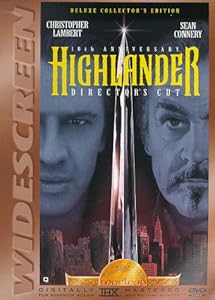Instapundit quotes Robin Hanson making some good points about lifespan, but getting way too literal about what “immortality” means:
“But finite increases in lifespan really have little to do with immortality. Immortality means you never die, ever. But forever is a really really long time! In fact, nothing you can imagine is remotely as long. . . . A thousand year lifespan would be fantastic, relative to our lifespan. I want it! But it is nothing like immortality.”
By the most literal definition, immortality would be impossible to achieve or prove. Even somebody who lives 25 quintillion years isn’t immortal — they just haven’t died yet. The only way to ever establish that anyone is immortal is to go all the way to the end of time and confirm that that individual is still alive.
But what do I mean by “the end of time?”
I have no idea.
On the other hand — can’t we be a little more flexible with our definitions? A guy who lives to be a thousand is clearly not immortal. However, if he hasn’t died yet, he’s just as immortal as the guy who makes it to 25 quintillion, or the guy who makes it to the end of time.
We are all effectively “immortal” until things go amiss and we die. The trick is to get better and better at being immortal.
I see Robin’s point about not wanting to be distracted by crazy increments like “25 quintillion” or “to the end of time,” but immortal is too good a word not to use. It has a lot of appeal. I’ve stated my view of the future of humanity many times — we’re going to be sexy immortal billionaires with superpowers.
Every term on the list is arguable, but if you put them all together you start to get a feel for where we’re going with this thing.
The “immortal” that we’re shooting for right now is not the God model (which is appropriately pursued, if at all, via religious belief) but rather a modified version of the Highlander model. Those “immortals” in Highlander lived for hundreds of years. They were called immortals, but their lifespan was only indefinite. However, if they could avoid coming to a catastrophic end, they were good for several centuries at least, and maybe longer.
That’s a good goal for us. And we can just skip the decapitations, thank you very much.
Always remember: in the end, there can be a whole lot of us.

